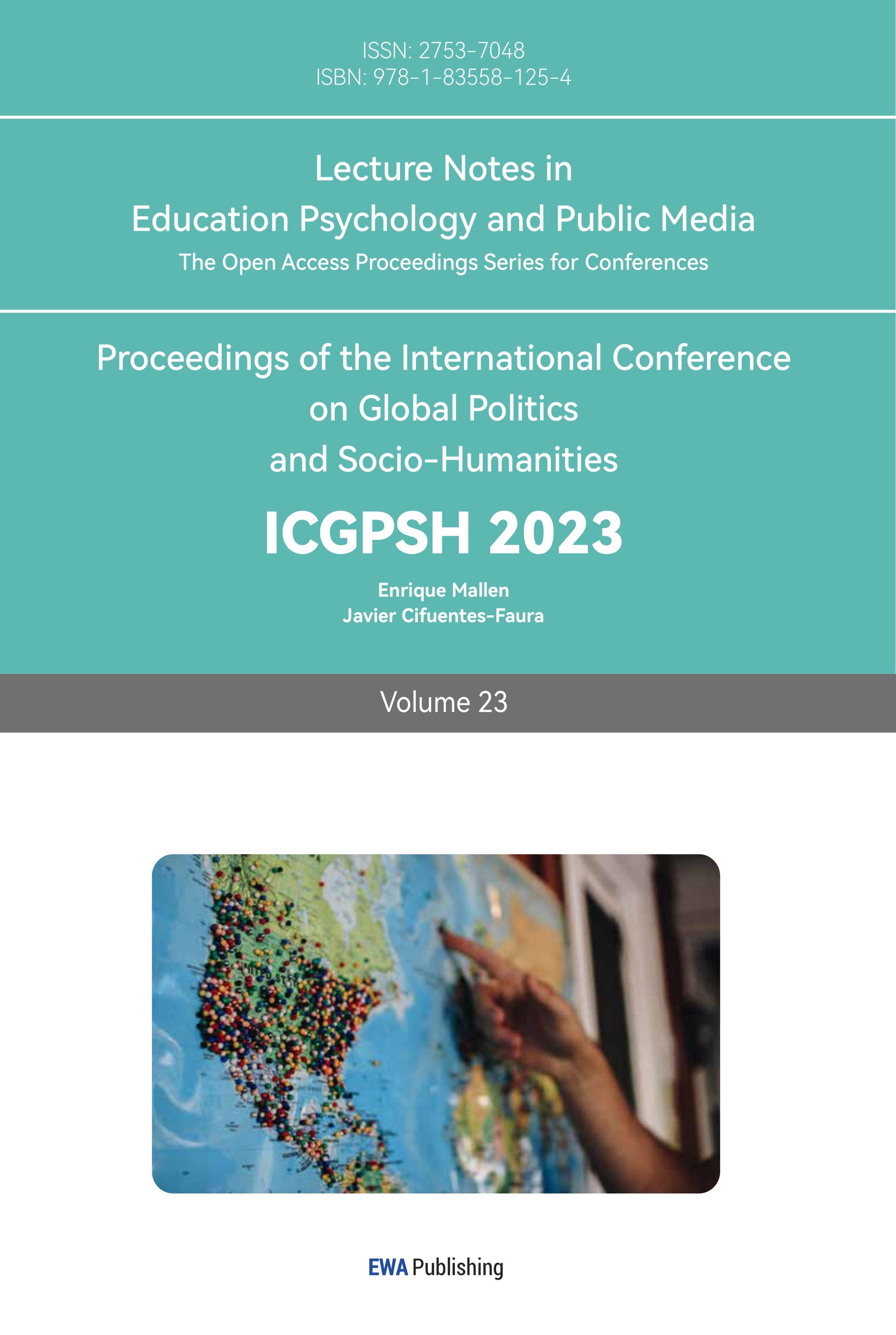References
[1]. Szu-Wei Wu. Preferences of Political Regime in East Asian Countries:An Analysis Based on the Perspectives of Citizens, Political Elites and Geopolitics. National Taiwan Normal University. 2021. 30660179.
[2]. Tang Rui. Institutional Incorporation and the Maintenance of Authoritarian Government Positions in East Asia: A Comparative Analysis of South Korea, Singapore and Philippines. Southeast Asian Studies, 3, 2019, 1–19.
[3]. Qiu-Ching Guo . The Development of One-Party Dominance: A Study of the People’s Action Party and Singapore. Taiwan International Studies Quarterly, 8(4), 2012, 63–84.
[4]. Kenneth Paul Tan. Singapore: A De-Politicized Civil Society under the Dominant-Party System? Journal Brief, 3, 2010.
[5]. Xian-Rong Lee. The Electoral System of the Singaporean Parliament. Taiwan International Studies Quarterly, 8(4),2012, 37–62.
[6]. Yun-Tsui Yeh. Nation Politics of Public Housing Policy in Singapore. Journal of Geographical Research, 50, May 2009.
Cite this article
Zhu,R. (2023). The Secrets of Continuous Governance by the People's Action Party in Singapore: A Focus on Parliamentary System Design. Lecture Notes in Education Psychology and Public Media,23,7-11.
Data availability
The datasets used and/or analyzed during the current study will be available from the authors upon reasonable request.
Disclaimer/Publisher's Note
The statements, opinions and data contained in all publications are solely those of the individual author(s) and contributor(s) and not of EWA Publishing and/or the editor(s). EWA Publishing and/or the editor(s) disclaim responsibility for any injury to people or property resulting from any ideas, methods, instructions or products referred to in the content.
About volume
Volume title: Proceedings of the International Conference on Global Politics and Socio-Humanities
© 2024 by the author(s). Licensee EWA Publishing, Oxford, UK. This article is an open access article distributed under the terms and
conditions of the Creative Commons Attribution (CC BY) license. Authors who
publish this series agree to the following terms:
1. Authors retain copyright and grant the series right of first publication with the work simultaneously licensed under a Creative Commons
Attribution License that allows others to share the work with an acknowledgment of the work's authorship and initial publication in this
series.
2. Authors are able to enter into separate, additional contractual arrangements for the non-exclusive distribution of the series's published
version of the work (e.g., post it to an institutional repository or publish it in a book), with an acknowledgment of its initial
publication in this series.
3. Authors are permitted and encouraged to post their work online (e.g., in institutional repositories or on their website) prior to and
during the submission process, as it can lead to productive exchanges, as well as earlier and greater citation of published work (See
Open access policy for details).
References
[1]. Szu-Wei Wu. Preferences of Political Regime in East Asian Countries:An Analysis Based on the Perspectives of Citizens, Political Elites and Geopolitics. National Taiwan Normal University. 2021. 30660179.
[2]. Tang Rui. Institutional Incorporation and the Maintenance of Authoritarian Government Positions in East Asia: A Comparative Analysis of South Korea, Singapore and Philippines. Southeast Asian Studies, 3, 2019, 1–19.
[3]. Qiu-Ching Guo . The Development of One-Party Dominance: A Study of the People’s Action Party and Singapore. Taiwan International Studies Quarterly, 8(4), 2012, 63–84.
[4]. Kenneth Paul Tan. Singapore: A De-Politicized Civil Society under the Dominant-Party System? Journal Brief, 3, 2010.
[5]. Xian-Rong Lee. The Electoral System of the Singaporean Parliament. Taiwan International Studies Quarterly, 8(4),2012, 37–62.
[6]. Yun-Tsui Yeh. Nation Politics of Public Housing Policy in Singapore. Journal of Geographical Research, 50, May 2009.









